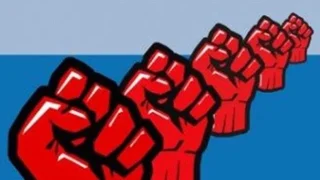
After seven months of wrangling, arrangements have finally been agreed to cover the deployment of more than 260 Australian police and other officials to Papua New Guinea (PNG) to help restore law and order. The ‘enhanced aid’ is part of a total Australian aid programme of over $400 million for 2004–05. This level of aid would amount to $2 billion over the next five years. The programme was unconscionably delayed over the question of immunity for Australian personnel when the Somare government suspended parliament in December last year to avoid a ‘no-confidence’ motion. This political uncertainty comes at a time when Papua New Guinea desperately needs a working government of national unity to consolidate and build on tentative signs of an economic recovery.
After three years of contraction GDP growth was at last positive in 2003, due mainly to a fortuitous combination of good weather at home and high commodity export prices abroad. Rising mineral prices have also revived interest in mineral exploration. Two major new resource projects are being negotiated – the Ramu nickel/cobalt mine to be developed by the Chinese government and the on-again, off-again 4,000 kilometre gas pipeline from Papua New Guinea’s Southern Highlands to Queensland. But resource development, unless carefully managed, is a deterrent to agriculture, on which more than 85% of Papua New Guineans depend, and to job creation in urban areas.
Because population grew as rapidly as national income in 2003, per capita income growth was zero. If the expected 2.8% GDP growth is achieved for 2004, per capita growth will still be only 0.3%. Resource revenues have also led to waste and corruption, subsidising a small political elite at the expense of investment in roads, health and education. The lack of productive work is fuelling high crime levels. Civil strife and crime are so prevalent in the Southern Highlands where the gas project is to be located that its high costs are creating negotiating problems.
In a globalising world where human capital (skills, knowledge, training and education) rather than physical resources (gold, oil, gas and forests) are becoming increasingly important determinants of growth and prosperity, Papua New Guinea is being left behind. The present generation has been lost to warring clansmen and ‘raskols.’ With less than half of school-age children in education and such poor health care that malaria and tuberculosis are rising and HIV/AIDS infections are exploding, it is now losing another generation.
Papua New Guinea requires major political and economic reforms if it is to step back from the brink. Security cannot be established without incomes from agriculture and jobs, the public sector cannot be reformed unless jobs are created for ‘ghost’ workers, and businesses cannot create jobs without security.
The new ‘mutual obligation’ framework for future Australian aid will only be effective if Papua New Guinea abandons the strategies and policies that have seen per capita incomes and living standards stagnate since independence in 1975. This paper sets out the economic reforms that could put Papua New Guinea on an annual growth path of 7% a year that would double its GDP every decade.
Helen Hughes is Professor Emeritus at the Australian National University and a Senior Fellow at CIS. This paper follows Susan Windybank and Mike Manning, (2003) and Helen Hughes, (2003).










